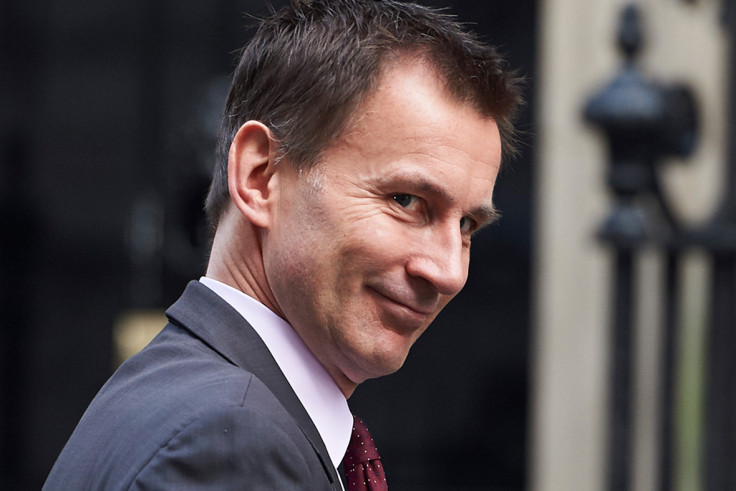Jeremy Hunt 'buries bad news' of new NHS junior doctors contract day Chilcot report published
Health secretary accused of sneaking our announcement during Tony Blair speech's on Iraq.

Jeremy Hunt has been criticised for announcing the government will impose a new contract on junior doctors while the media was focused on the publication of the Chilcot report.
Speaking in the House of Commons, the health secretary said he would force through the new deal from October, even though 58% of British Medical Association (BMA) members voted against a new contract on Tuesday (5 July) - a result he said left them "in a no-man's land that, if it continues, can only damage the NHS".
"After listening to this advice and further careful consideration of the equalities impact of the new contract I have this morning decided that the only realistic way to end this impasse is to proceed with the phased introduction of the exact contract that was negotiated, agreed and supported by the BMA leadership," Hunt said.
The new deal, he added, "reduces the maximum hours junior doctors can be asked to work, introduces a new post in every trust to make sure the hours asked of junior doctors are safe, makes rostering more child and family-friendly and helps women who take maternity time off to catch up with their peers."
The government and the BMA thought they reached an agreement over a new contract after back-to-back talks at conciliation service Acas in May. However, that was rejected by union members. The main changes the union agreed to at the time were that basic pay rise was to be reduced from 13.5% to between 10% and 11%, the weekend pay structure was changed and a reduction in pay for night shifts.
Hunt's decision to announce the changes came as Tony Blair defended going to war with Iraq after the publication of the Chilcot report. Twitter users criticised the timing, suggesting it had been orchestrated that way.
#IsItOK Jeremy Hunt has used the day of the #Chilcot report to bury his bad news about imposing the Junior Doctors contract? @TheLastLeg
— Chris Ward (@yorker129_7) July 6, 2016
Such an awful coincidence for Jeremy Hunt that the chilcot report came out today so we won't notice him impose a contract on junior doctors
— Miles (@miles_c2907) July 6, 2016
@claire__lou82 It's a good day to bury Jeremy Hunt.
— Steve Kilner (@1StevieKilner) July 6, 2016
Oh, I'm sorry. I meant, "bad news".
No....I was right first time.
"Psst, Blair's thing is happening. Sneak this out now..." #doctorsstrike #nhs #juniordoctors #juniorcontract https://t.co/Zd33yR44Ag
— Matt Fenlon (@nolnefm) July 6, 2016
© Copyright IBTimes 2025. All rights reserved.






















